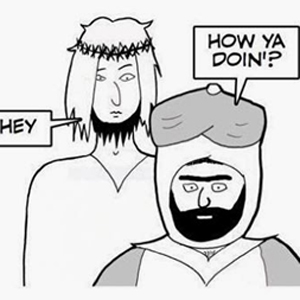Stranded in Greece while avoiding its asylum system and running the danger of being locked up for a year and a half, migrants and refugees have turned to the Balkans in their effort to reach Northern Europe.
Considered by many the last possible path to Europe, this trip is full of horrors says Hasam Nazari (25), a gifted musician from Afghanistan, who joined the trend five months ago, after having spent two years and a half in Greece.
“I saw a thirteen year old girl being raped in front of our eyes by a mafia gang after we had crossed the border into Fyrom,” he told me. “If you do not have euros to give them they maim you. They wait at the region beyond the border, around the abandoned houses on the way to the inner land. They ride bikes, ten or twelve, and have guns”.
The police know what is happening. “We were beaten in front of them and they looked the other way,” says Nazari. Contrary to offering protection, security forces in the region give heavy-handed treatment to arriving refugees and irregular migrants. Nazari has seen and experienced multiple beatings from police border guards. “They take you into the forest, strip you naked and steal everything valuable you have, if they do not beat you, you are lucky and then they tell you to go back were you came from."
The journey he made sounds like a game of snakes and ladders. He aimed to reach Hungary and from there, Austria. Two times he was arrested at Skopje, was registered and informally pushed back. He was caught once in Serbia, where he was badly beaten and then returned through Skopje back to Greece. Twice he was arrested after crossing into Hungary, detained for some days and returned to Serbia, Skopje and again Greece.
Immigrants have become increasingly unwelcome as Greeks wrestle with an endless economic crisis. In spring 2012 the government put in place an operation to shut off its borders and wipe the mainland of irregular migrants.
Many now opt to avoid Greece altogether, trying the crossing from Turkey straight to Bulgaria and then north. Smugglers have adapted to the new conditions and have moved the routes east. The harder it becomes the more money they ask. Now their fare might reach up to 3,500 euros, while a couple of years ago someone would cross the river Evros on the Turkish-Greek border with just 500.
“The smugglers take the groups close to the border, but don’t cross with them, they don’t guide them,” says Boris Chernicov from Public Information unit of the UN High Commission for Refugees in Bulgaria. “We have seen a shift to the East along the border. Now the biggest groups cross over through the thick forests of the Strandzha Mountains. It is extremely difficult terrain with very poor visibility”.
Bulgaria has three refugee centers, in Sofia (designed for 800 people), Banya (70) and Pastogor (300) - all of them operating above their capacity at the moment. For instance, there are 385 asylum seekers staying in Pastogor. Two weeks ago the Bulgarian government dedicated half a million Bulgarian Lev to arrange accommodation for another 500 people. There are also two detention centres, with poor conditions, in Lyubimets and in Busmantsi for irregular migrants.
Very few want to stay in Bulgaria but exiting the country irregularly is a punishable offence and some have ended up in prison. “Thirty asylum seekers are held in Sofia’s Central Prison," Chernikov says.
When crossing into Bulgaria, many asylum-seekers do not state their need for protection. Border Police have 24 hours to establish who this person is and why they are in the country. If they do not ask for asylum, they are treated as undocumented migrants and charged with illegal entry. An asylum claim later suspends the sentence but does not invalidate it. If later on they get caught trying to exit Bulgaria they are repeat offenders and could be sent to prison.
That’s what happened to Uaheyda Noor, a Syrian refugee now serving an effective prison term in Sliven. The 35 year-old mother of four arrived in Bulgaria with her husband Abdul Hanan Noor, 38, in December 2012. They were accommodated in Pastrogor, a transit facility close to the border with Turkey. At some point in January, Uaheyda took the middle sister and her son and attempted to exit Bulgaria towards Serbia. She was stopped by border police, sentenced to eight months in prison and started serving in Sliven in February. "She was due to be released in August, but to my knowledge was not released at the end of the month," Chernikov says.
Isabella Cooper, a spokesperson for the EU border agency Frontex, says the new trend has started showing on statistics from the beginning of 2013: “The Western Balkans route has seen an increase of 300 per cent since the beginning of the year”.
Bulgaria has seen the biggest increase, but Serbia has experienced a similarly sharp rise of incoming populations. In 2010 two thousand irregular migrants arrived in the country; by 2011 this was up to 9,500 and last year it reached 15,000. “We are struggling to provide for them but Serbia has limited resources and no help from Europe," says the Serbian Chief of Border Police, Nenad Banovic.
One of the most popular destinations for refugees and migrants who make it to northern Serbia is the forest of the border city Subotica. Many of them reside in an old brick factory in the city while many families stay in the forest until they try their luck at the Hungarian border. The majority of them get caught while crossing and are sent back. “Most of the returns are unofficial but occasionally there are some sent back formally,” says Mirolava Jelacic, legal analyst at the Center for Migration "Grupa 484".
But still, some make it and this is the reason the rest keep coming back.

